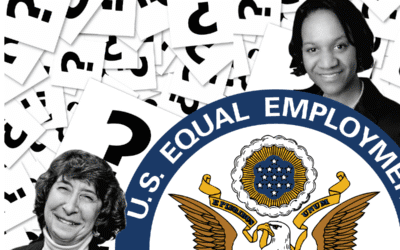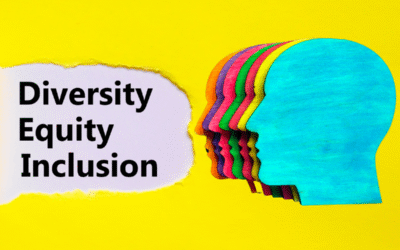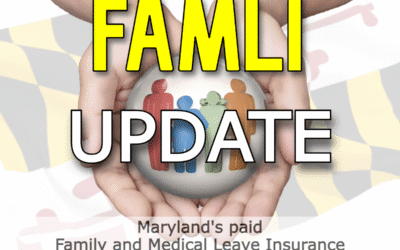
Hello and welcome to 2025! Today, language matters more than ever. Words hold power. While some phrases might seem harmless, their origins and implications can carry unintended consequences. Adopting more inclusive language shows respect for the diversity of experiences and backgrounds in today’s workplace. It’s not about policing speech but fostering a culture where everyone feels valued and respected.
Employers and employees alike must remain mindful of the impact of their words, as inclusive language fosters a respectful and productive work environment. Below, are just a few examples of terms that are increasingly recognized as problematic with alternative phrases to consider instead.
Gendered Language
<ol style=”text-indent: -1.5em”><li>“Guys” <ul><li>Why it’s problematic: Referring to a mixed-gender group as “guys” can unintentionally exclude or alienate individuals who do not identify as male.</li><li>Alternative phrases: “Team,” “Everyone,” “Folks,” “All.”</li></ul><li>“Girls” (when referring to adult women)<ul><li>Why it’s problematic: Using “girls” to describe women can be infantilizing and disrespectful, undermining their professionalism and value.</li><li>Alternative phrases: “Women,” “Ladies,” “Colleagues,” “Team members.”</li></ul></li></ol?
Cultural Sensitivity
<ol start=”3″><li>“Pow wow”<ul><li>Why it’s problematic: “Pow wow” is a term rooted in Native American culture, referring to a sacred gathering. Using it casually can be seen as cultural appropriation.</li><li>Alternative phrases: “Meeting,” “Brainstorm session,” “Discussion.”</li></ul></li></ol>
Terms Linked to Slavery
<ol start=”4″><li>“Slave driver”<ul><li>Why it’s problematic: This phrase trivializes the historical suffering of enslaved people.</li><li>Alternative phrases: “Taskmaster,” “Demanding boss.”</li></ul><li>“Sold down the river”<ul><li>Why it’s problematic: Originating from the slave trade, this term references a betrayal that often resulted in devastating consequences for enslaved individuals.</li><li>Alternative phrases: “Betrayed,” “Letdown.”</li></ul></li><li>“Crack the whip”<ul><li>Why it’s problematic: This phrase evokes imagery associated with slavery and oppression.</li><li>Alternative phrases: “Motivate,” “Enforce discipline.”</li></ul></li><li>“Uppity” <ul><li>Why it’s problematic: Historically, this term was used to demean Black individuals who were perceived as not knowing their “place.”</li><li>Alternative phrases: “Arrogant,” “Overconfident.”</li></ul></li><li>“Articulate”<ul><li>Why it’s problematic: This term has been used to describe someone who is not expected to sound educated based on assumptions about their background.</li><li>Alternative phrases: “Intelligent,” “Eloquent.”</li></ul></li></ol>
Bias in Technology and Everyday Speech
<ol start=”9″><li>“Blacklist/Whitelist”<ul><li>Why it’s problematic: These terms can reinforce racial biases by associating “black” with negativity and “white” with positivity.</li><li>Alternative phrases: “Blocklist/Allowlist,” “Denylist/Allowlist.”</li></ul><li>“Chinese menu” (to describe varied options)<ul><li>Why it’s problematic: This phrase can perpetuate stereotypes about Chinese culture and cuisine.</li><li>Alternative phrases: “A la carte,” “Customizable options.”</li></ul></li></ol>
Mental Health and Stigmatization
<ol start=”11>”><li>“Psycho” or “Crazy”<ul><li>Why it’s problematic: Using “psycho” or “crazy” to describe someone trivializes mental health conditions and perpetuates stigma.</li><li>Alternative phrases: “Unpredictable,” “Troubled,” or “Erratic.”</li><ul></li></ol>
Historical and Racial Sensitivity
<ol start=”12″><li>Clan/Klan” (as a casual reference)<ul><li>Why it’s problematic: These terms evoke associations with the Ku Klux Klan, a group infamous for promoting white supremacy and violence.</li><li>Alternative phrases: “Group,” “Family,” “Team.”</li></ul></li></ol>
Steps for Embracing Inclusive Language
<ol><li>Educate Yourself: Learn about the origins of the words and phrases you use.</li><li>Be Open to Feedback: If someone points out problematic language, listen and adapt.</li><li>Practice Alternatives: Incorporate inclusive phrases into your daily vocabulary.</li><li>Encourage Awareness: Share knowledge with colleagues to promote a more inclusive work environment.</li></ol>
For questions about how to be more open and welcoming as an employer, reach out to an RKW attorney.









